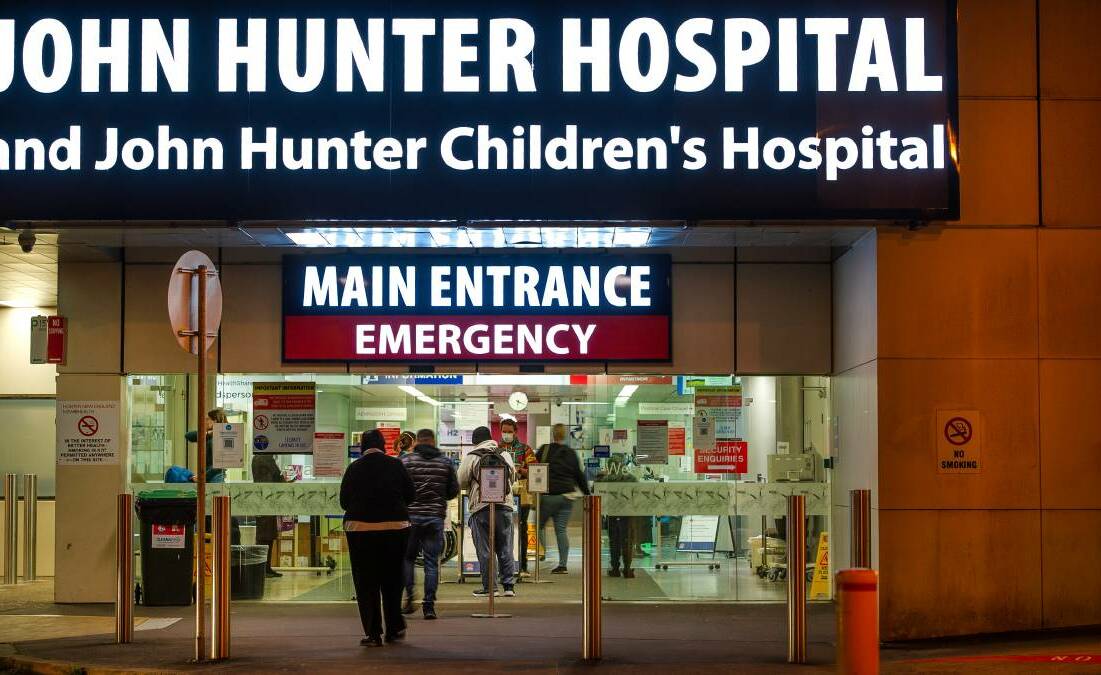
John Hunter Children's Hospital will be one of nine centres in the country to gain access to a national precision medicine program to treat children with cancer.
The "Zero Childhood Cancer" program will include "all young Australians with cancer" aged up to 18.
The federal government and Minderoo Foundation are jointly funding the $67 million project, which covers "children diagnosed with any type of cancer, irrespective of their cancer risk".
The program has operated since 2017 in a partnership between the Children's Cancer Institute and the Kids Cancer Centre at Sydney Children's Hospital in Randwick.
The treatment had been offered to children with the highest-risk cancers, who faced a less than 30 per cent chance of survival.
An expansion of the program across the country will begin this month. It will be done in stages, starting with children diagnosed with brain cancer, then progressing to all other types of childhood cancers this year.
The Zero program includes all nine of Australia's children's hospitals, along with 22 national and international research partners.
It is based on the premise that every child's cancer is unique. The treatment involves genomic analysis, with scientists looking for genetic alterations that may be driving cancer growth.
They then look for drugs capable of targeting those alterations. This information is given to clinicians treating the affected children to help inform decision-making.
"The expansion of Zero to be available to all Australian children with cancer is something we've all been working towards for a long time, so it's extremely exciting to now see it unfolding," said Professor Michelle Haber, executive director of Children's Cancer Institute.
"Analysing each child's cancer at a genomic level is providing unprecedented and extremely valuable insights into childhood cancer.
"For example, finding out which genetic changes drive these cancers will allow us to develop new targeted therapies matched to these changes."
Genomic analysis will track the way each child's cancer changes in response to treatment.
"Analysing the cancer journey of up to 1000 young Australians each year in this way will add volumes to our understanding of childhood cancer, for the benefit of all children diagnosed with cancer in the future," Professor Haber said.
"The more children who participate in Zero, the more we learn. In this way, children being treated for cancer today are actually helping the children of tomorrow."
Zero's precision medicine approach represents "a fundamental change in the way cancer is treated," said Professor David Ziegler.
"Analysing a child's cancer at a genomic level can lead to a whole new way of understanding that child's cancer. This can lead to a more accurate diagnosis, prognosis and, in some cases, a refined treatment approach."
The Zero program has previously stated that genomic data generated from the first 250 children in the program "identified the molecular, or genetic, basis of a child's cancer in more than 90 per cent of cases".
"70 per cent of children had at least one new potential treatment option identified based on their cancer's specific genetic makeup."
Of the children who received the recommended treatment, the tumour shrank in 30 per cent of cases.
The cancer "completely regressed" in some patients.
"In another 40 per cent of cases, the tumour stopped growing and stabilised."
The children in this initial study had "aggressive cancer and represented the sickest of all children diagnosed with cancer".
The nine centres are:
John Hunter Children's Hospital in Newcastle
Kids Cancer Centre of the Sydney Children's Hospital in Randwick
The Children's Hospital Westmead
Royal Children's Hospital in Melbourne
Monash Children's Hospital in Melbourne
Queensland Children's Hospital in Brisbane
Women's and Children's Hospital in Adelaide
Perth Children's Hospital
Royal Hobart Hospital







